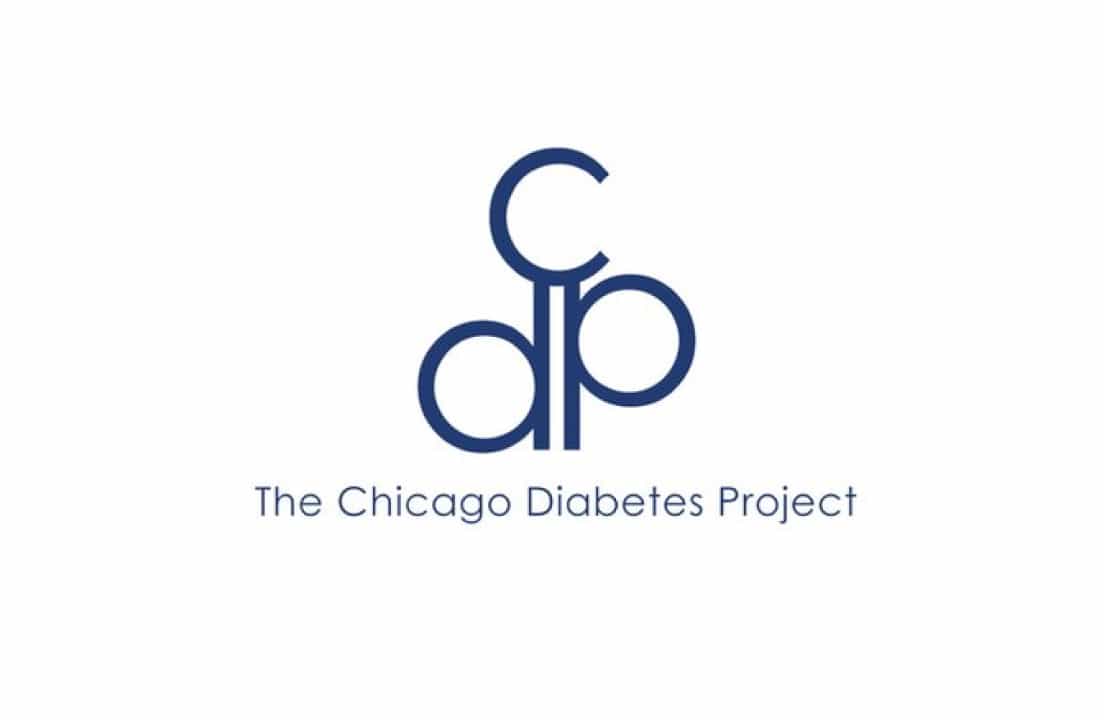T1D Guide
T1D Strong News
Personal Stories
Resources
T1D Misdiagnosis
T1D Early Detection
Research/Clinical Trials
Misdiagnosed with Type 2 Diabetes: A Journey to Understanding Type 1
Kerry was misdiagnosed with type 2 diabetes at 31 years old. Her story is one of perseverance, resilience, and determination to bring joy back into her life—even in the face of a chronic illness.

When you’re young, healthy, and active, a diabetes diagnosis is probably the last thing on your mind. For Kerry, her journey with diabetes began in 2008 with persistent and troubling symptoms — mostly because she had to fight to get the correct diagnosis.
Early Symptoms: Easy to Dismiss
Looking back, the signs were there. For six to eight months, Kerry experienced symptoms that disrupted her daily life.
“I’m not one to go to a doctor, so I kept passing it off as other things,” she recalled.
But the signs became impossible to ignore:
- Unquenchable thirst: drinking a gallon of orange juice and still feeling parched
- Insatiable hunger: eating an entire pizza and still feeling starved
- Unexplained weight loss: 15 pounds disappeared without trying
- Persistent yeast infections: over-the-counter medications couldn’t resolve
“Thirst and hunger were consuming my days,” Kerry said. “I felt like no matter what I drank or ate, it wasn’t enough. It was exhausting.” The physical symptoms weren’t the only toll—Kerry began to feel emotionally worn out, questioning why her body felt so out of control.
Then, one night, a new and terrifying symptom appeared.
“Half of my face started going numb in the middle of the night,” she said. “It would come and go, and it was really scary.” Waking up to that sensation filled Kerry with dread, but she brushed it aside, convincing herself it would pass.
The physical toll was undeniable, but the emotional burden was equally heavy. She started questioning her health, her choices, and even her body’s ability to sustain her. Still, Kerry hesitated to seek medical attention—until Thanksgiving 2008. Standing next to her identical twin, the contrast was stark.
“I looked like a skeleton,” Kerry said. “I also had thrush, and I knew something was seriously wrong.”
This moment was a wake-up call. Seeing the distinct differences between herself and her twin forced her to confront the reality that her body was struggling in ways she couldn’t ignore any longer.
Misdiagnosis and a Bit of Shaming
Kerry finally went to an urgent care, hoping for answers. Instead, she left with a prescription for yeast infection medication–and a lecture.
“The male doctor told me I probably had too many sexual partners,” she recalled. “It was humiliating.” The experience left her feeling judged and dismissed at a moment when she desperately needed support.
An hour later, the clinic called her back. Her blood work results were shocking:
- Blood sugar level: 513 mg/dL
- A1C: 13%
Kerry remembered sitting in the clinic room as the doctor told her she had diabetes.
“I was in shock,” said Kerry. “They didn’t even know what type it was. They just assumed it was type 2 because of my age.” There were no further questions about her symptoms or family history—just a blanket assumption that left her feeling lost.
Kerry was hospitalized for three days to stabilize her blood sugar level. The doctor started her on metformin and insulin, but the diagnosis didn’t sit right.
The idea of being misdiagnosed haunted her, especially as her symptoms persisted despite treatment.
“I kept thinking, ‘Why isn’t anything changing?’” she said. “No matter what I did, I didn’t feel better.” The fear of living with unresolved symptoms weighed heavily on her, adding to the anxiety of managing a chronic condition she barely understood.
The Correct Diagnosis: Type 1 Diabetes
Three months later, Kerry visited Dr. Jason Baker in New York City, an endocrinologist who also lives with type 1 diabetes.
“He was wonderful,” said Kerry. “He looked at my history, symptoms, and bloodwork and told me I didn’t need metformin. I had type 1 diabetes.”
Getting the right diagnosis was a relief, but it didn’t erase the challenges.
“I dealt with a lot of depression and anxiety,” she shared. “I became very rigid with what I ate and drank. I was petrified. If you get a stomach flu, you have to go to the hospital. I was always on edge, wondering, ‘Am I going to die?’”
The psychological toll of managing type 1 diabetes, especially after a misdiagnosis, is something she feels deeply even today. The fear of making a mistake, the constant vigilance, and the lack of education left her feeling isolated and overwhelmed. But Dr. Baker’s guidance made all the difference.
“He taught me how to live with this,” she said. “Not just survive, but actually live.”
Life Today: Finding Freedom Through Baking
Now 47 years old, Kerry has embraced her journey and turned it into a mission to help others. Through her company, EAT GANGSTER, she creates grain-free, dairy-free, nut-free, and egg-free foods designed to bring joy back to the lives of people with food allergies and autoimmune conditions.

“As a type 1, we’re dealing with a number of autoimmune issues along the way, and food has so much to do with it,” she said. “Just eating low-carb isn’t the answer. For me, avoiding inflammatory foods is key.”
The idea for EAT GANGSTER was born out of a personal desire to reclaim joy in her relationship with food. After years of feeling restricted, she wanted to create products that were both nourishing and indulgent. Her vision expanded as she noticed how many families struggled to navigate food allergies and autoimmune conditions.
Kerry’s business partner, Heather McDonough, is a Functional Nutritional Therapy Practitioner and recipe developer!

“I wanted more freedom in my own life to enjoy foods that I love,” Kerry said. “And I saw a lot of families with kids who had food allergies. They couldn’t enjoy food—they felt like they were in jail. I wanted to change that.”
Her journey has also included managing thyroid issues, undergoing a partial thyroidectomy, and navigating the ups and downs of autoimmune-related health challenges. Through it all, she’s remained committed to finding balance and joy.
Today, EAT GANGSTER offers a wide range of products that cater to people with specific dietary needs while focusing on flavor and fun. From cookies to mixes, every product is designed to bring joy back to the table.
“Food should be something that connects us, not something that makes us feel isolated,” said Kerry. “That’s what EAT GANGSTER is all about — making food fun again.
Advocating for Yourself
Advocating for yourself in the face of a misdiagnosis can feel overwhelming, especially when you’re already grappling with a new and confusing health reality. For Kerry, self-advocacy wasn’t just about asking questions—it was about standing firm when the answers didn’t seem right.
“If something doesn’t feel right, speak up,” said Kerry. “Even when I felt dismissed or unsure, I knew my body was telling me something was wrong.”
Imagine being handed a prescription for metformin and told to simply “manage” your diabetes, only to find that no amount of effort seemed to make things better. That’s the emotional weight she carried for three months before meeting Dr. Jason Baker, the endocrinologist who finally helped her piece together the truth.
The frustration of being misunderstood, the fear of living with unresolved symptoms — those were her constant companions. “I felt invisible,” said Kerry. “When doctors don’t listen, it’s like your pain doesn’t matter.”
But she didn’t let that stop her. Kerry pushed for a second opinion despite the anxiety of doubting her care. And when she found a doctor who truly listened, the difference was life-changing.
“Dr. Baker didn’t just treat me,” Kerry said. “He educated me. He gave me the tools to take control of my health, and that made all the difference.”
“Self-advocacy,” she explained, “Is about persistence. It’s about asking the hard questions, seeking out specialists, and trusting your instincts when something feels off. It’s also about building a support system — people who will stand with you when you’re too tired to fight on your own.”
For anyone navigating a similar journey, Kerry offered these steps:
- Get Tested: If you suspect type 1 diabetes, ask for autoantibody testing. Programs like TrialNet make it accessible and easy.
- Find the Right Doctor: Not every healthcare provider will have the knowledge or experience to recognize atypical cases of type 1 diabetes. Don’t be afraid to seek out an endocrinologist or a second opinion.
- Build Your Village: Whether it’s family, friends, or the diabetes community, having a support network is crucial. It’s a journey you don’t have to face alone.

Kerry's story reminds us that the road to a diagnosis isn’t always straightforward, but persistence and self-advocacy can lead to clarity. The relief of finally being heard, of receiving the proper care, and of understanding what your body needs — that’s what makes the fight worth it.
“You’re the only one living in your body,” said Kerry, “Never stop fighting for it.”








.webp)
.jpg)

.jpg)
.webp)
.jpg)


.jpg)

.jpeg)
.jpg)


.jpg)
.jpg)


.jpg)

.jpg)
.jpg)


.jpg)
.jpg)

.jpg)
.jpg)
.jpg)
.jpg)
.jpg)

.jpg)
.jpg)
.jpg)
.jpg)
.jpg)
.jpg)
.jpg)
.jpg)
.jpg)
.jpg)

.jpg)
.jpg)
.jpg)

.jpg)
.jpg)


.jpg)
.jpg)
.jpg)
.jpg)
.jpg)













.jpg)


.jpg)













.webp)





%20(1).png)




.jpeg)






.jpg)








.webp)